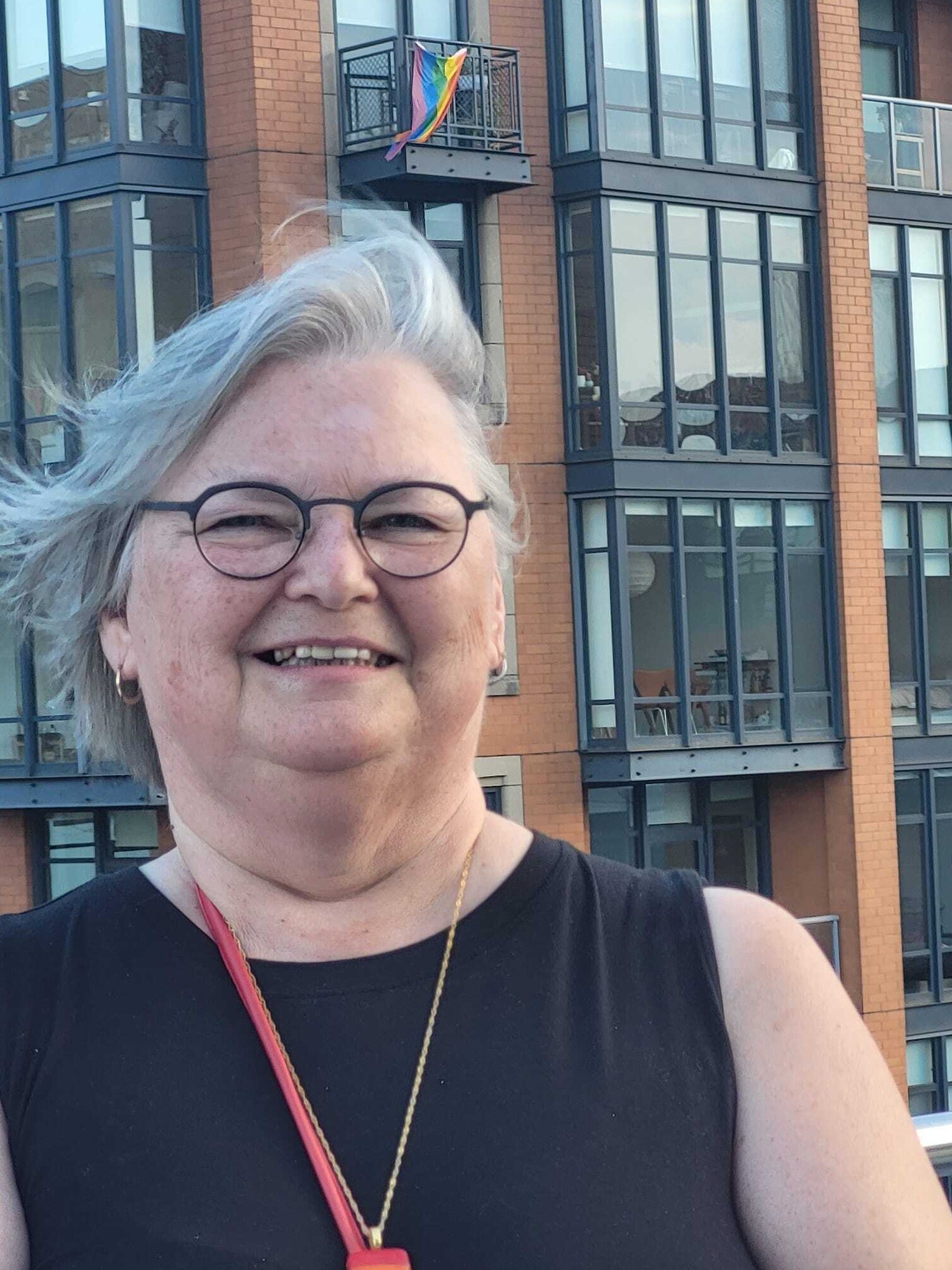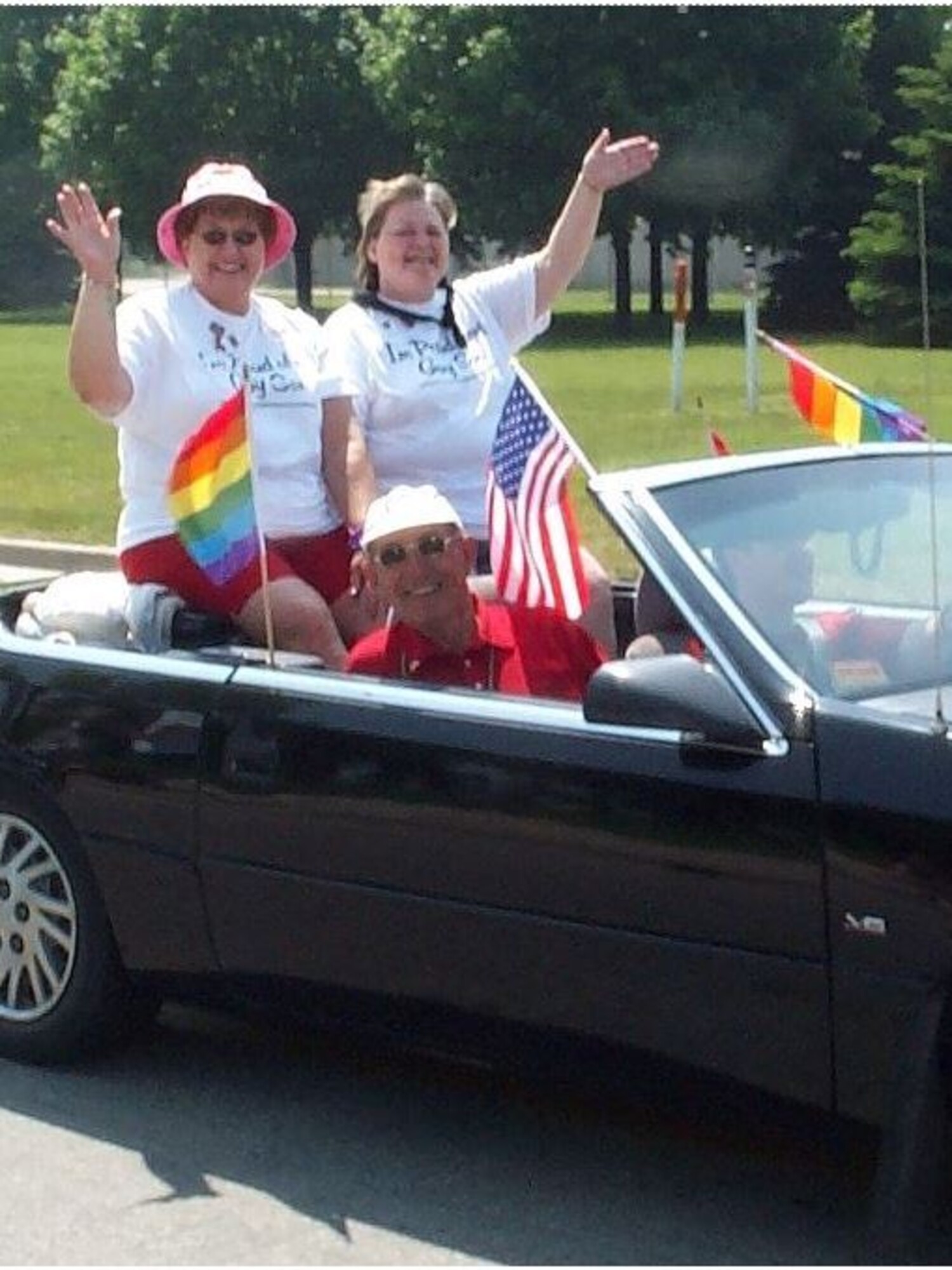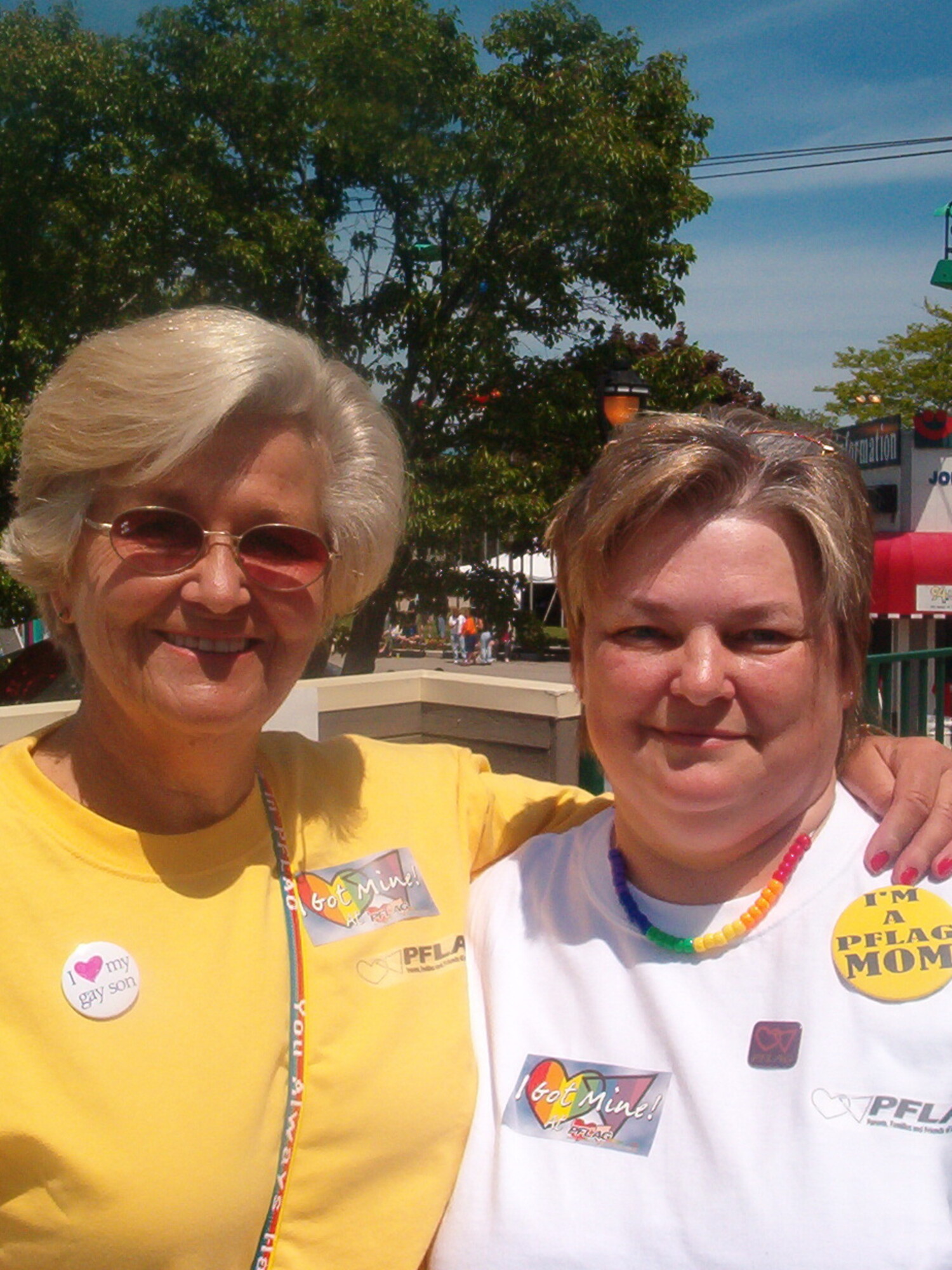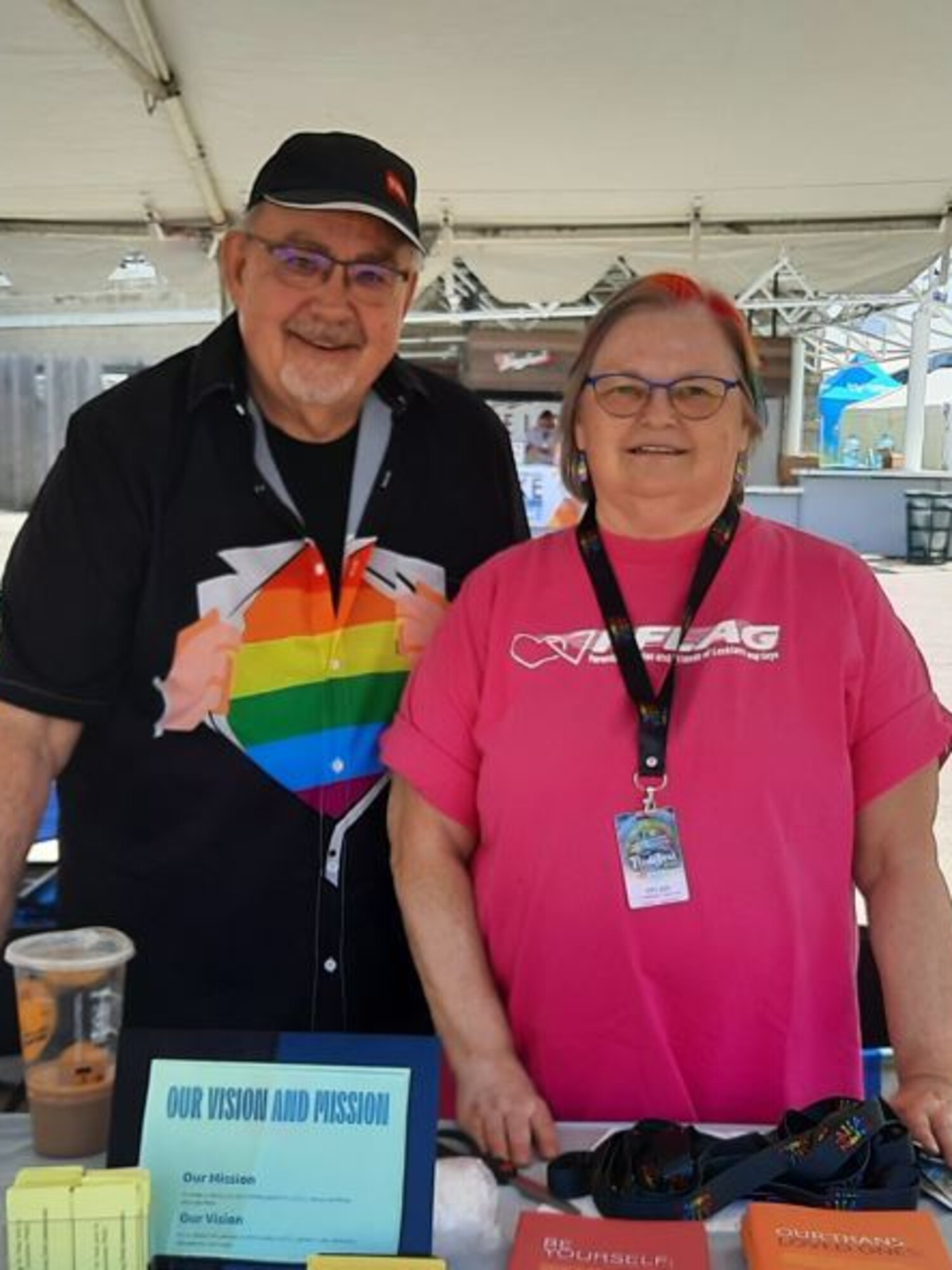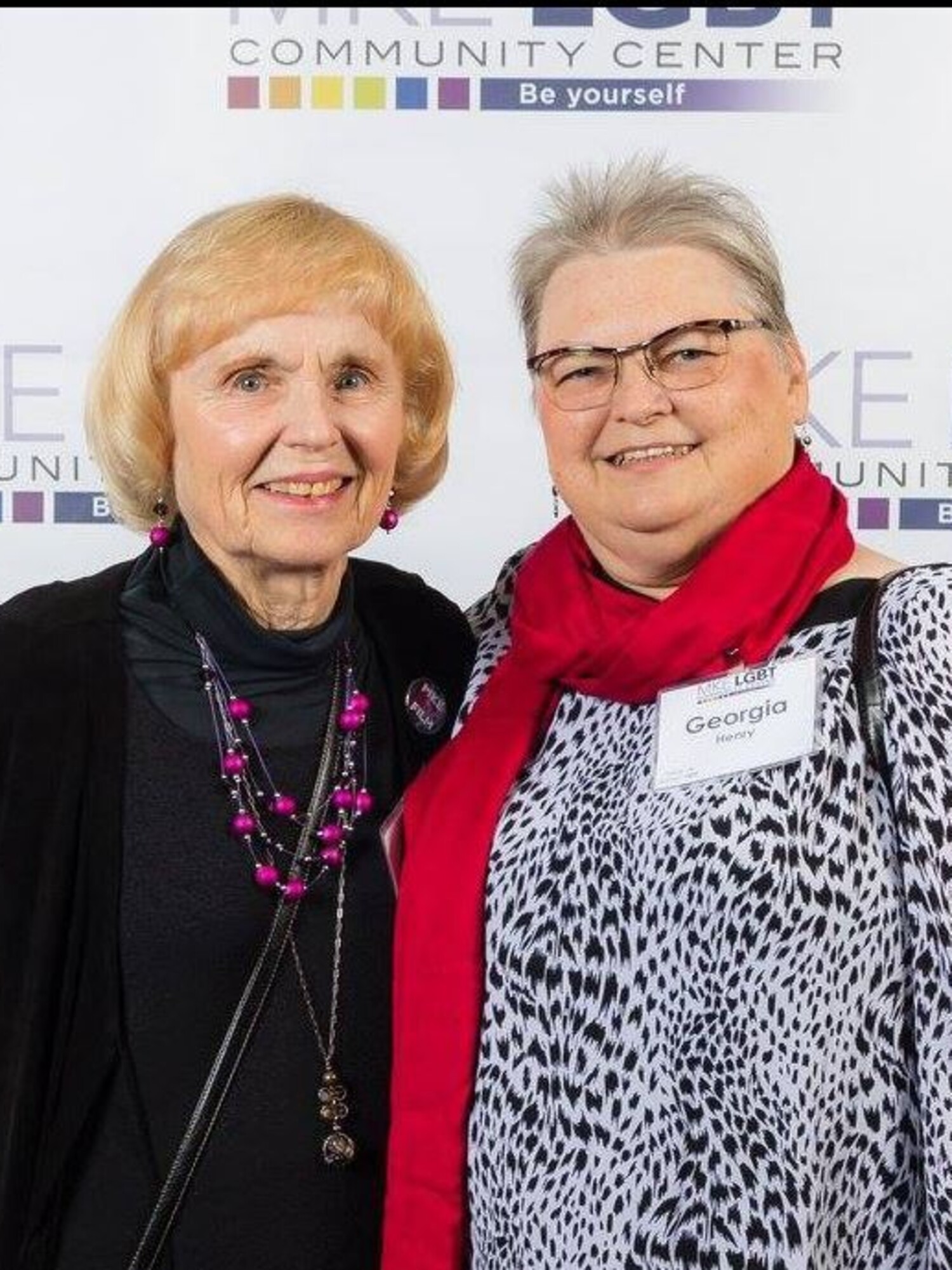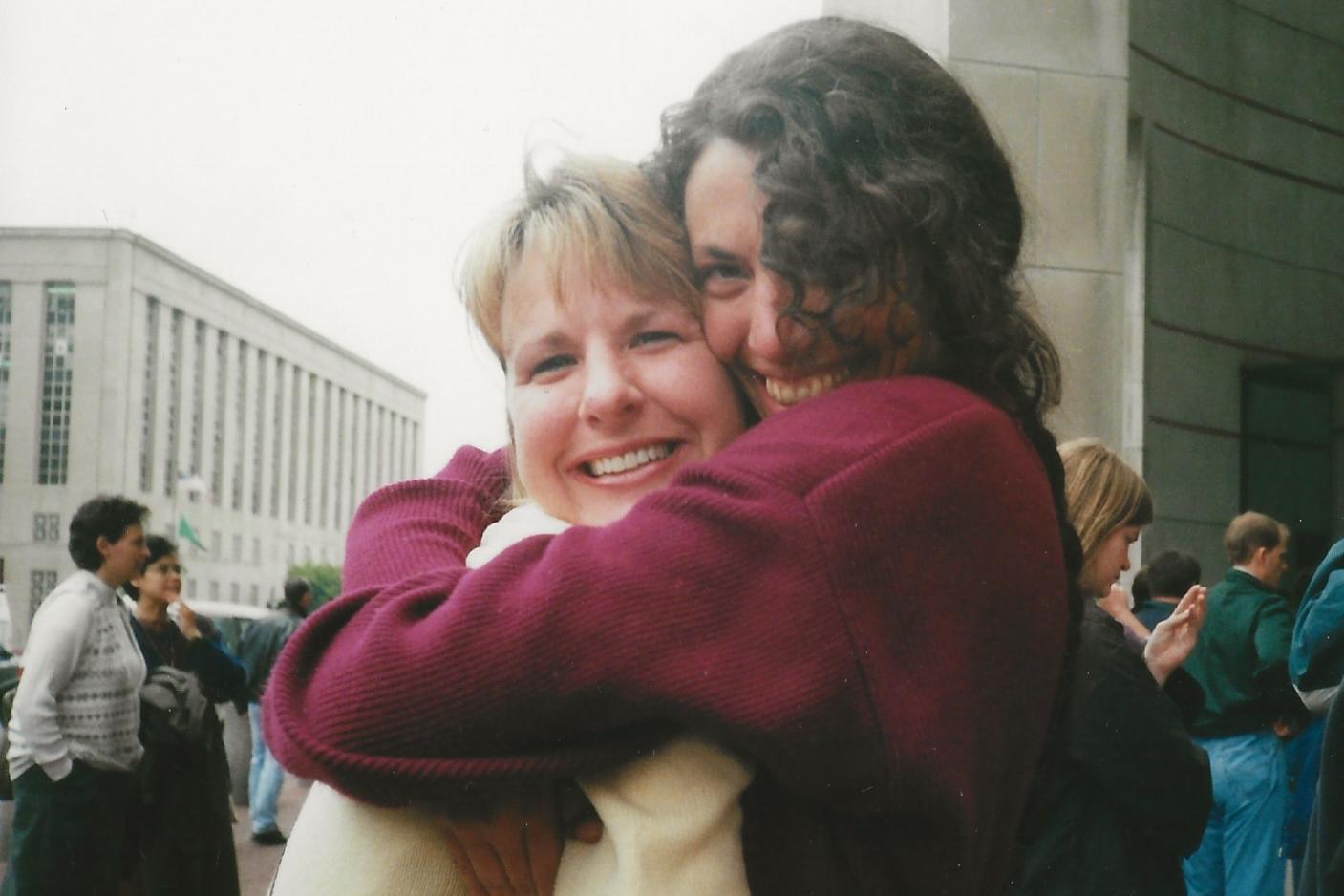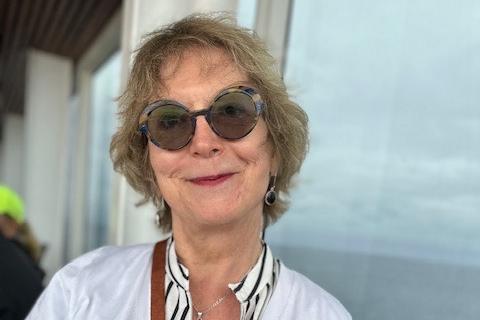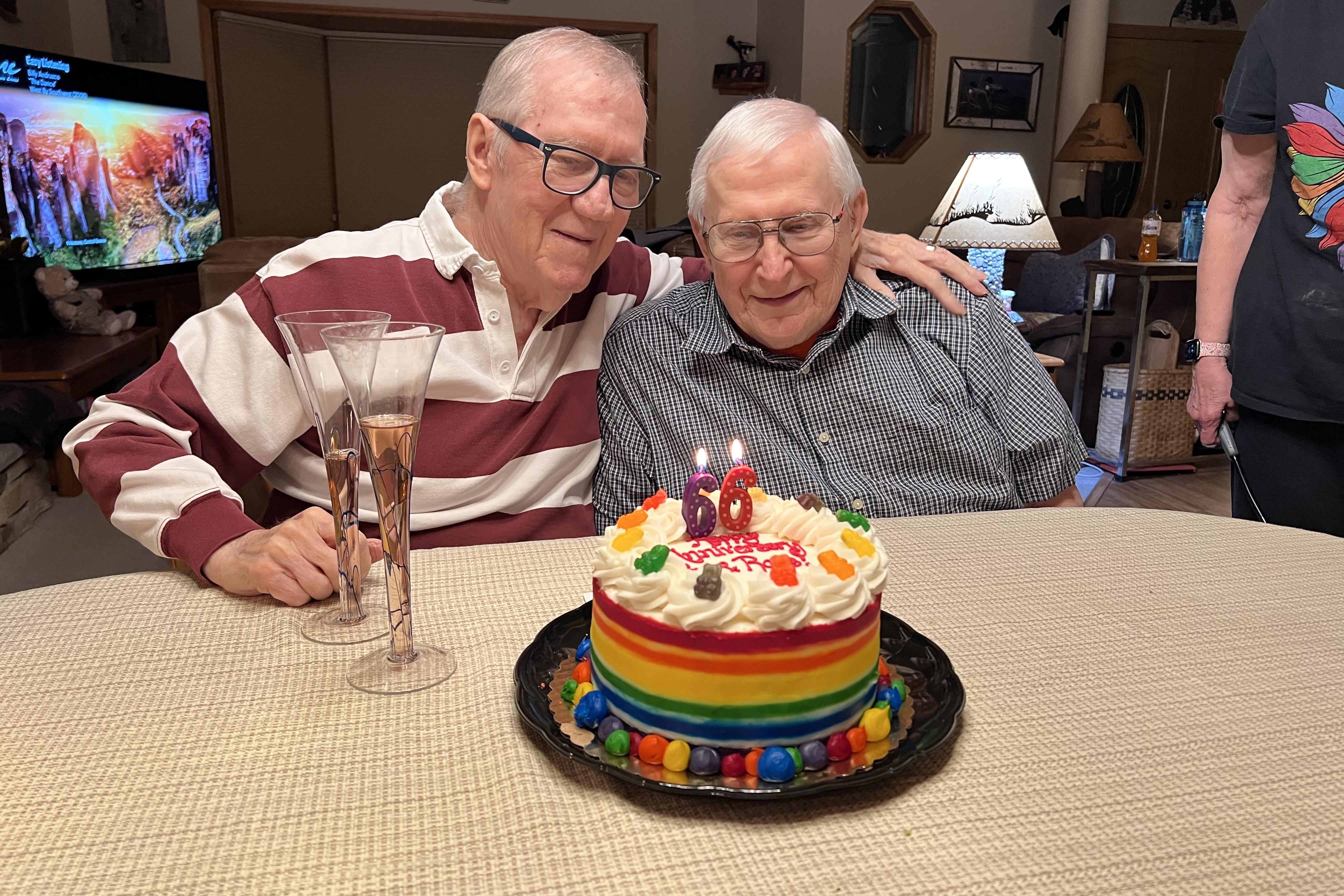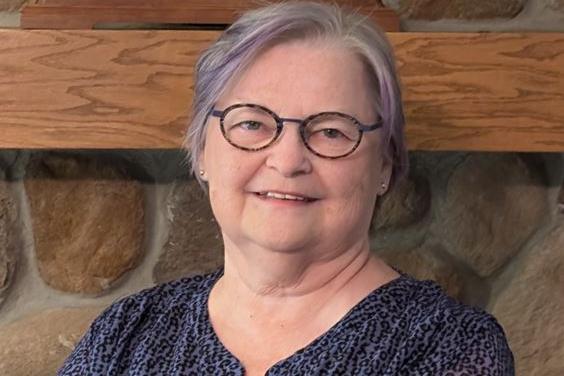
Georgia Henry: conquering fear and hate with love

“When you no longer need PFLAG, PFLAG still needs you.”
Feeling lost and alone while trying to learn how to best support her gay son, Georgia Henry turned to PFLAG Milwaukee for support. In the twenty-five years since, she has evolved from participant to chapter president, helping countless Milwaukee-area LGBTQ people and their families feel safe, celebrated, empowered and loved.
Georgia Henry remembers one of the first emotions she experienced after her son Nathan came out to her and her husband in February 1999 being fear. Not a fear of what others would think— “There was never any question about acceptance,” she emphasizes—but fear for his safety.
Just four months earlier, the murder of Matthew Shepard shocked the nation and brought national attention to hate crime legislation. Stories of serial killer Jeffrey Dahmer’s horrific torture and murder of seventeen young men during his trial in 1992—many who he sought out at gay bars—still haunted southeast Wisconsin
residents.
For Georgia, the key to knowing her son was safe was information and connecting with other families.
“I wanted to find resources and people who could help me support Nathan,” she explains. “I had no idea where to go for help, so at first I did nothing.”
Nathan discovered PFLAG, the nation's largest organization dedicated to supporting, educating, and advocating for LGBTQ people and those who love them, when he was invited to a luncheon by his church’s pastor.
Involvement with PFLAG started as a source of support and kinship for Georgia and her family. It would evolve into a calling for her; a way of giving back for the support she received by helping to create a caring,just, and affirming world for the LGBTQ community.
The next chapter
Georgia is currently looking for a future president to mentor, who will carry forward and build on the great work she has done.
She hopes to provide the same level of guidance she received from mentors Elna and Brigitte, who she says took her under their wings and guided her during her early involvement with PFLAG. She hopes that PFLAG can continue to help spread acceptance in a society where LGBTQ people’s rights and dignity are constantly up for debate. She’s particularly concerned for transgender people, who have a hard time accessing the health care they need and whose safety is always at risk.
Georgia encourages parents to talk openly with their children about LGBTQ identity and experience. Raising kids in inclusive environments can have a huge impact on creating a world where everyone can feel safe and supported. “Many families don’t talk about it, so kids don’t know how their parents feel about it,” she points out.
For family members looking for help supporting an LGBTQ loved one, Georgia encourages them to attend a PFLAG meeting.
“You will find peace and comfort in the welcoming people here who have the same experiences,” she says. “And our website is available any time of day for information. We have free booklets you can download on a wide range of subjects. But most importantly, just know that you will be fine because the support you need is here.”
And maybe one of those people will follow in Georgia’s footsteps. Because as they say at every meeting, “When you no longer need PFLAG, PFLAG still needs you.”
To learn more about PFLAG, including how to find a meeting and to access resources, visit their website.
 Georgia's sons Nathan and Ahren
Georgia's sons Nathan and Ahren
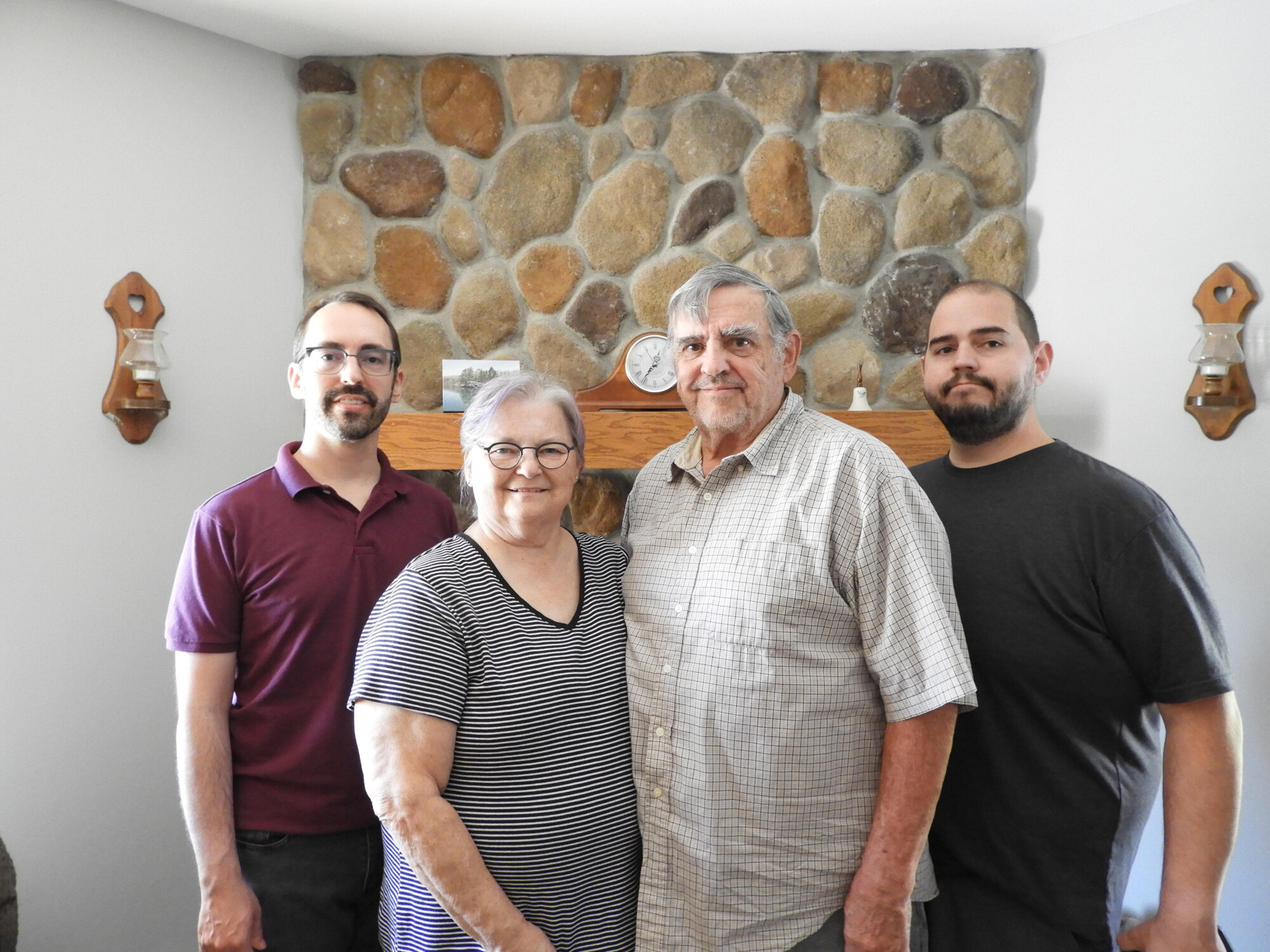 Georgia with her husband and sons
Georgia with her husband and sons
recent blog posts
April 06, 2025 | Michail Takach
Camille Farrington & Vicki Shaffer: standing up for students
March 31, 2025 | Amy Luettgen
March 29, 2025 | Michail Takach
The concept for this web site was envisioned by Don Schwamb in 2003, and over the next 15 years, he was the sole researcher, programmer and primary contributor, bearing all costs for hosting the web site personally.
